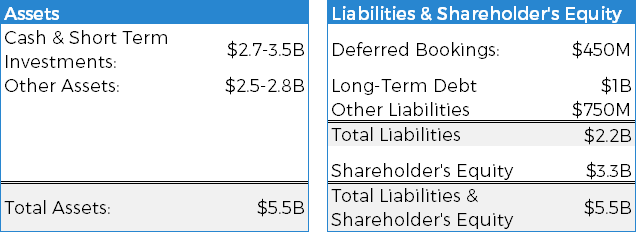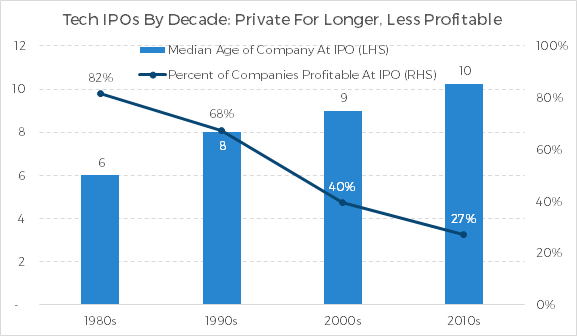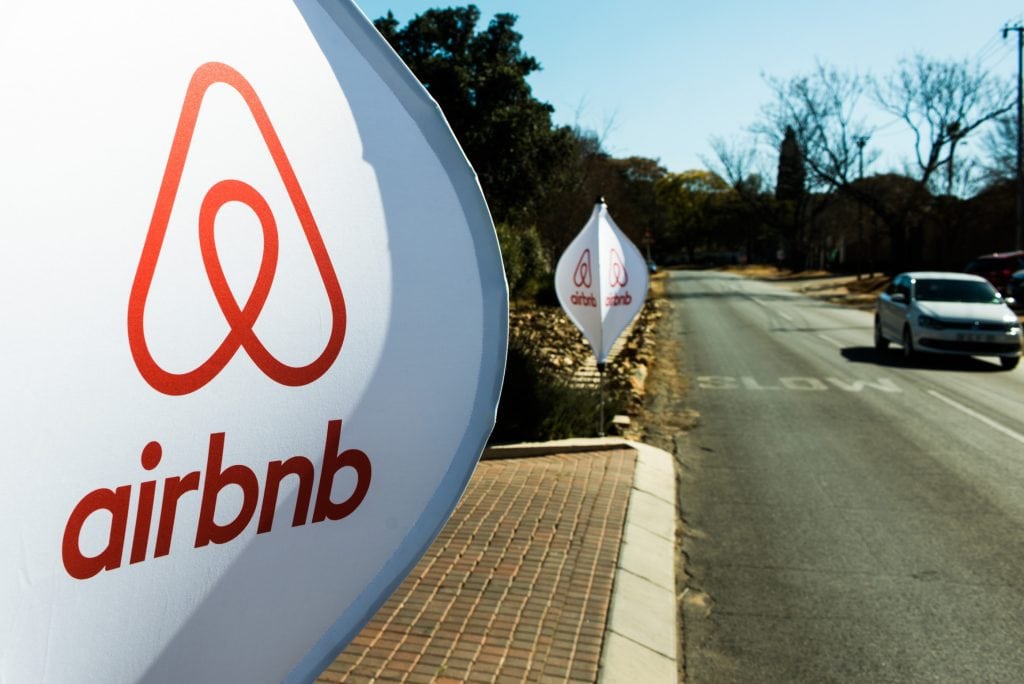Skift Take
Headlines can often miss a key point: Airbnb has a positive and growing cash flow. Airbnb was already in a small club of highly valued startups, but there's an even more elite group, those that can turn a profit.
Airbnb has its own hedge fund? Well, not exactly.
We’ve heard of a “hedge fund hotel” before — that’s what Wall Street traders call a company with high hedge fund ownership — but a lodging company operating its own hedge fund is unusual. That’s why it piqued our interest when Bloomberg reported that then-chief financial officer Laurence Tosi, who was forced out a couple of weeks ago, was running a hedge fund within Airbnb.
Bloomberg reported that the fund was similar to one Tosi ran when he was Blackstone CFO, and that it generates $5 million a month for Airbnb, representing 30 percent of overall cash flow.
The only problem is that, although Blackstone operates a number of leading hedge funds, Tosi never managed any of them. Instead, as the CFO for both Blackstone and later Airbnb, Tosi’s job was to oversee each respective organizations’ corporate treasuries, the divisions responsible for managing the businesses’ daily cash needs.
Down the Rabbit Hole
Corporations often hold large amounts of cash on their balance sheets, some of it socked away for a rainy day, and other parts of it to be used as working capital earmarked for upcoming payments to employees and suppliers. Shrewd treasurers who see their deposits earning nothing in a bank account will often invest some of their dollars in cash management strategies to bolster returns. These strategies are designed to be short term in nature, to quickly meet any unexpected cash demands. They primarily invest in low volatility fixed income securities so as not to lose hard earned dollars. Returns are nothing to write home about but are better than seeing cash balances slowly lose value to inflation.
Skift Research dug into Blackstone’s financial filings from 2009 to 2014 to examine the returns of Blackstone’s “treasury cash management strategies” under Tosi’s tenure. They ranged from a maximum gain of 2.2 percent to a loss of 1.4 percent. In typical years, returns ran closer to 1.7 percent. When Tosi left Blackstone in 2015, the firm had invested $1.7 billion in these strategies.
Our Estimate of Airbnb’s Cash and Balance Sheet
We can use this data to calculate an estimate of Airbnb’s cash position. The Bloomberg story implies that Airbnb is generating $60 million a year from its investment activities. If we assume that Tosi matched his prior track record of 1.7 percent, that would imply a cash balance of $3.5 billion. This estimate is very sensitive to the rate used, however. If Tosi were to earn his best Blackstone return of 2.2 percent, Airbnb’s implied cash balance falls to $2.7 billion.
We could also take a different approach and assume he invested the same amount of capital at Airbnb as in his previous role at Blackstone, which would amount to $1.7 billion. To generate $60 million off of this amount, Tosi would require a 3.5 percent return. That’s impressive for a cash management strategy but still not, in our view, a hedge fund. For context, the HRFI (Hedge Fund Research Index), a broad measure of hedge fund performance that tracks 2,000 managers, returned 10.4 percent last year.
Our cash estimate squares with the little financial information on Airbnb that we do know for sure. In a recent statement, Airbnb confirmed that it has $5.5 billion in assets on its balance sheet, so it is conceivable that the firm holds $2.7 to $3.5 billion of those assets in cash.
Cash Sources
Securities and Exchange Commission filings show that Airbnb has raised $3.3 billion in equity capital. A firm’s assets must always equal the total of its shareholder’s equity and its liabilities, which means Airbnb’s liabilities are somewhere near $2.2 billion.
It is likely that a portion of its liabilities are deferred bookings that arise when Airbnb collects a customer’s payment at the time of booking, perhaps months upfront, but does not deposit the cash with the host until 24 hours before the reservation. This business practice raises working capital for Airbnb, which could then be invested in a cash management strategy. It is also recorded as a liability on the balance sheet.
In 2016, Expedia carried $2.6 billion of deferred bookings, which amounted to 22 percent of its total liabilities. Priceline booked $600 million in deferrals, which equated to 6 percent of its total liabilities. That implies that Airbnb carries anywhere from $135 to $500 million of deferred bookings, if it operates in a similar manner.
Airbnb also reportedly closed on a billion dollar debt facility in 2016.
That means we know of at least three sources of cash for the company — equity raises, deferred bookings, and debt financing. If these are not immediately invested, that could require a cash management strategy on Airbnb’s part.
Though plenty of data is still missing, we can start to piece together a mosaic of Airbnb’s operations.
What Airbnb’s Balance Sheet Might Look Like 
Source: Skift Research, Company Filings, Bloomberg, The Wall Street Journal
Profitability
The final issue is profitability. Sources say the company generated $2.6 billion in revenue and $100 million of “cash-flow profitability” in 2017. So, did Airbnb’s so-called hedge fund’ really generate 60 percent of profits? Didn’t Bloomberg say it was only 30 percent of cash flow? Why are these numbers out of whack?
Part of the issue here is that profit is a surprisingly hard term to define. It can perhaps refer to operating income, pre-tax income, net income, cash flow, or some other measure. In our experience with startup reporting, profitability rarely gets a clear definition and is often used with little regard for the very real differences between metrics.
Our best guess is that most reports of Airbnb’s profits are referring to earnings before interest, taxes, depreciation, and amortization (EBITDA), a measure of operating earnings frequently used by financial analysts. EBITDA excludes non-cash charges, such as depreciation, as well as non-operating expenses, like interest expense or taxes. By doing so, it acts as a proxy for cash generated by the core operations of the business.
A company that is profitable on an EBITDA basis can still report a net loss after taking those additional expenses into account. It is also not the same thing as the cash flow of a business, which, even with positive EBITDA, could still lose money by spending on large capital expenditures, for example.
Income generated by Airbnb’s “hedge fund,” therefore, is likely excluded from EBITDA but should be included on the statement of cash flows. The exact accounting is tough to nail down, but in our view, the reason cash management strategies appear to have outsized returns relative to profits and cash flow has more to do with how recently Airbnb turned the corner on profitability than anything else. As Airbnb scales, income from its treasury should shrink in relative importance.
That CEO Brian Chesky confirmed Airbnb is profitable on an EBITDA basis and generating positive cash flow is the real surprise here. Certainly, many of Airbnb’s peers, like Uber, are not profitable. In fact, only 27 percent of tech companies that executed initial public offerings were profitable in recent years, part of a steady march downward from 82 percent in the 1980s.
Recent Tech IPOs Skew Older and Less Profitable

Source: Jay R. Ritter, PhD, University of Florida
Generating Enough Cash
Look, we get it: The story on Airbnb’s secret hedge fund is a lot more exciting than the one on treasury management and cash flow accounting. In our view, the real takeaway is not that Airbnb has built a sophisticated cash management strategy. The fact is that many companies do the same. We believe the most exciting development here is that Airbnb generates enough cash to even require putting together such an operation in the first place.
At the end of the day, Airbnb is not a hedge fund masquerading as a homesharing platform. It would, in fact, appear to be one of the more profitable unicorns in Silicon Valley. That bodes well for the company as it moves into its second full year of profitability. With all the recent leadership changes taking place at Airbnb, and plans for launching new products, let’s see if the company can keep the momentum going.
This story was written by Skift Research. We want to make clear that our estimates are speculative and based off incomplete information. Wherever possible, we tried to provide our assumptions and sources.
For more from Skift research, consider subscribing. Subscribers gain access to our entire vault of reports, analyst calls, and data sheets conducted on topics ranging from technology to marketing strategy to deep-dives on key travel brands.
Dwell Newsletter
Get breaking news, analysis and data from the week’s most important stories about short-term rentals, vacation rentals, housing, and real estate.
Have a confidential tip for Skift? Get in touch
Photo credit: Airbnb's cash management investments contributed to its reported profitability in the latter part of 2017. But profitability was small and with the lack of financial reporting, a lot of the numbers are speculative. Eric Newcomer / Bloomberg
